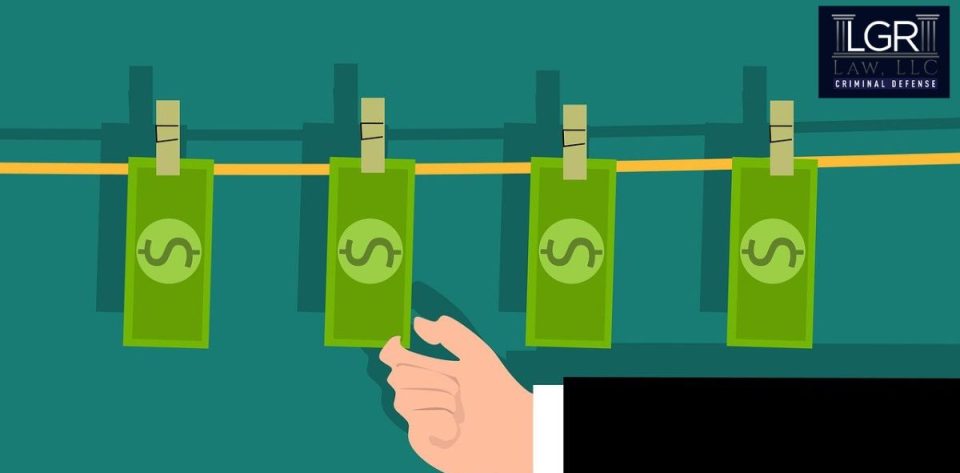|
|
Last Modified on Nov 09, 2025
Facing money laundering allegations can be an overwhelming experience. It can be compounded by the prospect of having to face federal charges. Money laundering has complex legalities, and its regulations can be challenging to comprehend. It is important when facing these charges to understand federal money laundering laws and penalties.
About Us
For over a decade, LGR, LLC has been advocating on behalf of clients facing federal criminal allegations across a broad range of legal issues. Established in 2013, we have extensive experience litigating federal charges. A federal money laundering attorney from LGR, LLC can aggressively advocate on your behalf with sound counsel and legal strategies.
What Is Money Laundering?
Money laundering occurs when financial resources obtained through illegal means are made to appear as having a legal source. Obscuring the source of the money is often done through filtering it through what is known as a “shell company,” which acts as a vehicle for outside financial movement. These companies often come in the form of cash-heavy businesses, such as laundromats and restaurants.
Federal Money Laundering Laws
Federal approaches to money laundering are articulated in the Money Laundering Control Act of 1986. When defining money laundering and what counts as illegal activities, typically two provisions are used as a guideline. These are 18 U.S.C. 1956 and 18 U.S.C. 1957.
- 18 U.S.C. 1956, or the Laundering of Monetary Instruments, criminalizes the engagement of making financial transactions using funds from unlawful activity for the purpose of hiding their source. This also includes transporting money internationally for the same purpose. In addition, this law makes it a crime to participate in transactions where the police have presented money as criminally derived.
- 18 U.S.C. 1957 is entitled Engaging in Monetary Transactions in Property Derived from Specified Unlawful Activity. This prohibits engaging in monetary transactions involving more than $10,000 in property derived from criminal activity. Broadly, this law differs from 18 U.S.C. 1856 in that illegal monetary actions do not specifically have to be made in order to conceal the source of unlawfully obtained money.
The US government has several means of discerning possible money laundering activities. Typically, they closely scrutinize suspicious monetary transactions. If you spend $300,000 or more in cash on real estate, for example, there may be an investigation into your activities. Likewise, under the Bank Secrecy Act, financial institutions are required to report transactions over $10,000.
Penalties for Money Laundering
Under the Money Laundering Control Act, both state and federal laws apply in money laundering convictions. Typically, the severity of the punishment depends on the amount of money involved in the crime.
Someone facing third-degree money laundering charges in New Jersey, for example, may have been alleged to have laundered less than $75,000 and face an attending prison sentence of up to five years, with a $15,000 fine. On top of these charges, the defendant may face federal charges, whose penalties carry fines up to $500,000 and prison time up to 20 years.
There is no minimum sentence for federal money laundering cases. Each case is determined by its context, the actors involved, and the circumstances of the crime itself. In 2021, the average federal sentence for money laundering was 69 months of imprisonment. That year, the Southern District of New York was one of the top five districts for money laundering offenders.
Why Hire Us?
At LGR, LLC, our attorneys hold themselves to the highest standards when representing our clients. We understand that every case is unique, and we provide counsel with open communication on how to approach your case.
We are familiar with the regulatory complexities of money laundering accusations and have the skills necessary to practice in both the state and federal courts in New York and New Jersey.
In New York, federal money laundering cases are typically handled by the United States District Court for the Southern District of New York (SDNY) or the United States District Court for the Eastern District of New York (EDNY), depending on the case’s specifics, such as where the offense occurred. In New Jersey, federal money laundering cases are generally handled by the United States District Court for the District of New Jersey, with courthouses in Newark, Trenton, and Camden.
FAQs
What Is the Federal Penalty for Money Laundering?
Federal penalties for money laundering depend on the context of the crime. Typically, federal penalties work in conjunction with state penalties. They can reach up to 10 years in prison, and as much as 20 years in prison, and carry financial penalties of either double the amount of the money laundered, or up to $500,000.
How Much Money Is Considered Money Laundering?
In the USA, money laundering doesn’t require a specific amount of money. It’s defined by intent and actions. Any funds, regardless of size, derived from illegal activities and moved to conceal their source or nature can qualify. Transactions over $10,000 trigger stricter reporting under the Bank Secrecy Act, but smaller amounts can still constitute money laundering if illicitly handled.
What Qualities Should a Money Laundering Lawyer Have?
When you hire a federal money laundering lawyer, you should consider several factors. It is important to have an attorney who is able to clearly communicate appropriate strategies and relevant information regarding your case to both you and the other parties involved. It is also critical to have representation with extensive experience dealing with money laundering litigation.
How Does the Government Detect Money Laundering?
Federal agencies like the FBI, DEA, and IRS use tools like suspicious activity reports (SARs) from banks, financial audits, and investigations to detect money laundering. The Bank Secrecy Act requires reporting of transactions over $10,000, while advanced data analysis helps identify patterns of illicit financial activity. Undercover operations and international cooperation also aid in uncovering complex laundering schemes.
Hire a Federal Money Laundering Lawyer
While facing federal allegations of money laundering can be overwhelming, it is important to remember that the charges are not uncommon. A 2021 survey conducted by the United States Sentencing Commission found that 70.4% of money laundering offenders had no prior criminal convictions. Many who are charged are caught unaware and are unsure of how to proceed.
At LGR, LLC, we have been helping clients navigate the complexities of federal litigation for years. Contact us today to learn how we can help you going forward.





